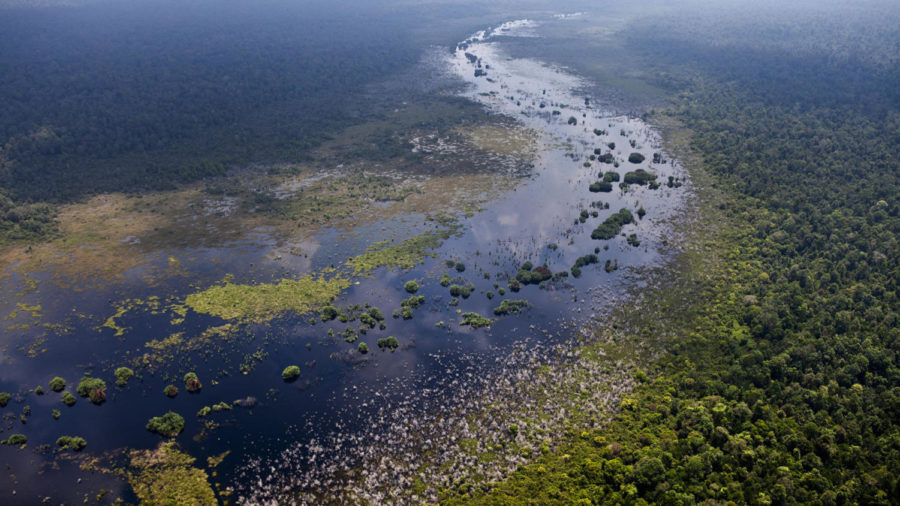The Importance of the Peatlands
The peatlands in the Congo Basin in west-central Africa
“The Congo Basin’s peatlands are the world’s lungs. People say if the world exists, it’s because Congo is breathing,” says Joseph Lombo Bokanga in the article “What do the Protectors of Congo’s Peatlands Get in Return?” by West African bureau chief for the New York Times, Ruth Maclean. Although making up a small amount of Earth’s surface, peatlands store an unimaginable amount of carbon, contributing to the fight against global warming. However, the increasing problem of deforestation and future climate change is threatening this ability. If this problem becomes a reality, peatlands could contribute more to climate change by releasing more carbon than taken in.
The peatlands give significantly to the Earth other than just absorbing carbon. It also provides safe, clean drinking water and food to nearby economies. In terms of safety, it minimizes the risk of floods. They lower temperatures in the surrounding areas and aren’t very likely to burn during wildfires. Overall, the Peatlands contribute to the high biodiversity on Earth.
Peatlands are more valuable than what initially meets the eye, seeing that they “store more carbon than all other vegetation types in the world combined,” according to IUCN. With Earth’s current instability regarding climate issues, peatlands are already starting to become damaged and are becoming a massive source of greenhouse gas emissions, “responsible for almost 5% of global anthropogenic CO2 emissions”.
Deforestation is already a problem that is escalating due to the demand for wood and other tree-related resources. However, this issue significantly impacts the peatlands. According to CarbonBrief, the “removal of trees from above peatlands can leave large areas of ground exposed to the sun, which can cause the boggy ground to dry out.” Carbon is now being freed at a more rapid pace. Currently, a ban permitting logging across areas of the peatlands has been instituted. However, plans to lift the ban in some countries are already being discussed according to CarbonBrief. This lift would have a tremendous increase in deforestation. In terms of climate change, global warming directly impacts precipitation. According to CarbonBrief, the peatlands could “experience an overall reduction in rainfall,” which is necessary for the peatlands to live and thrive.
Considering this information, it is essential that we combat this issue. Stopping activities such as agricultural conversion and deforestation would be a massive help to preserving the trees within the Peatlands. Implementing more bans on logging in the peatlands and supporting the protection of it, such as some nations like the UK have already done, will also help. Most importantly, the peatlands’ existence is unknown to most people, so educating others about why it is important to the well-being of Earth would make a huge difference– albeit a seemingly small step.
The peatlands are too valuable to lose, especially with Earth’s rising climate change issues that only worsen over time. Ignoring the already escalating problems that directly impact the peatlands will only lead to our already contributing destruction of Earth. If we don’t take action, we might live to see the peatlands’ extinction soon enough.
Your donation will support the student journalists of Dublin High School. Your contribution will allow us to purchase equipment and cover our annual website hosting costs.

Ananya Mahadi is a freshman at Dublin High School. She developed an interest in writing after getting motivation from her amazing 5th grade english teacher....



































